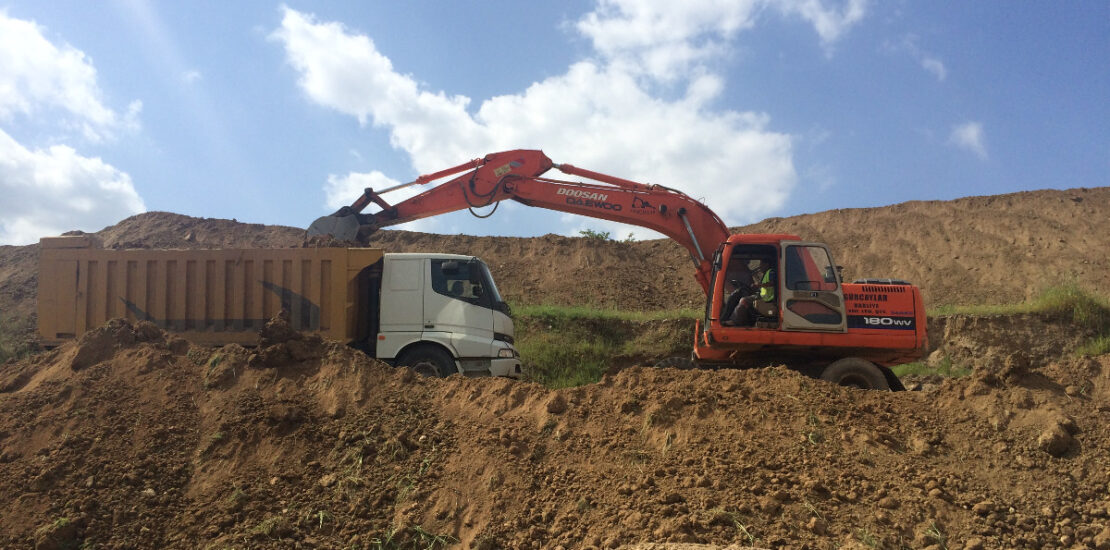A ground survey should be carried out to determine the strength and characteristics of the ground in the excavation area. Necessary precautions should be taken according to the condition of the ground.
According to the ground survey, the edges of the excavation should be sloped to prevent the excavation from collapsing.
Lateral surfaces in cases where the slopes do not hold the ground; Shoring should be done by supporting materials such as steel and timber.
For excavations deeper than 150 centimeters, hand ladders should be available and/or roads should be constructed so that workers can enter and exit the excavation site safely. Equipment and supports purchased for shoring should not be used for climbing up and down.
If there is a soil stock area for excavation, it should not be chosen close to the site. When necessary, a barrier should be built around the stock area.
Personal protective equipment such as helmets and vests must be used in the work area.
Necessary precautions must be taken to prevent people from falling into the excavation area. In excavations of 2 meters or more depth, a barrier and tape should be installed at the edge of the site.
Vehicles should be prohibited from approaching the work area.
Entrances and exits to the excavation area must be controlled. Entry and exit routes should be determined and people should go through them.
You should stay at least 20 meters away from work machines in the work area.
Operators must have documentation and training to enable them to use the work machine.
The 10 km/h speed limit must be observed within the construction site.
After rains, the excavation site should be checked to prevent possible dangers.
Only one vehicle should be allowed on the ramp at the excavation site.
A marker must be available. The filer and the signalman must work at a safe distance.
Transporting people with work machines should not be allowed.
Faulty and unmaintained machines should not be used.
Care should be taken to park work machines in safe places.
Warning systems of work machines must be in working order. (Reverse gear, warning light, etc.)
Maintenance of the machines should not be done while they are running.
Fire should not be used when refueling machines.
It must be ensured that nearby structures will not be damaged during excavation works. If there is a possible damage situation, temporary support measures need to be taken.
Underground cables should be identified before excavation and precautions should be taken against possible damage.
If the population of poisonous animals such as snakes and scorpions is high in the excavation area, precautions such as noise, vibration, stubble burning and agricultural pesticide application should be taken to avoid them. Necessary serums against poisoning should be kept in the infirmary.

